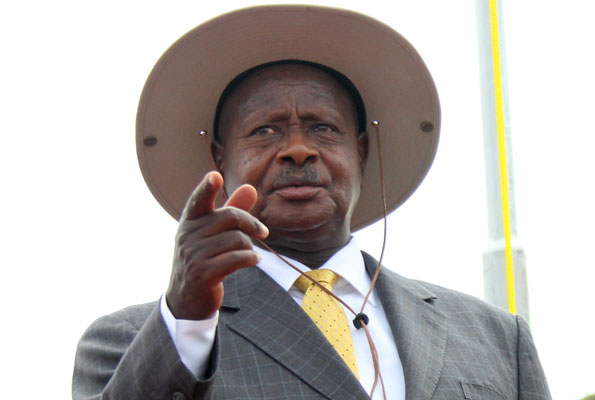President Yoweri Museveni has caused confusion in the public after announcing that the actual tax on mobile money transactions is 0.5 per cent and not 1 per cent as passed by parliament in the 2018/19 budget.
“The 1 per cent was a miscommunication. The actual figure was 0.5 per cent, half of one per cent. That is what we should debate, on the mobile money,” Museveni said on Wednesday on his Facebook page.
He said mobile money transfer is a useful service though he said Ugandans should pay the 0.5 per cent tax on transactions to develop the country.
The president said there is no tax on depositing money on mobile money accounts. “This is to clarify that there is no tax on mere depositing money on a mobile phone account. That confusion should be clarified. The half –per cent tax, not 1 per cent, is only on the sender and the receiver of money through mobile money,” he said.
Yesterday the State Minister for Finance David Bahati while addressing the press in Kampala said Ugandans would pay 1 per cent tax for sending and receiving money on mobile money platforms run by telecom companies.
Following the president’s announcement, it is not clear whether those who had paid the 1 per cent tax on mobile money transactions since July 1 will get their extra money refunded. Some Ugandans had already sent the money to their relatives and paid utility bills.
On social media tax, he said social media chatting is “a luxury by those who are enjoying themselves or those who are malicious.” He said Ugandans by logging on to social media were donating money to foreign companies and sees no problem with Ugandans paying some tax to government.
“As to social- media tax, all the moral reasons are in favour of that tax. The social – media users have no right to squander the dollars I earn from my coffee , my milk etc by endlessly donating money to foreign telephone companies through chatting or even lying and, then, they are allergic to even a modest contribution to their country whose collective wealth they are misusing,” he said.
He said accused betting companies of siphoning the money earned in Uganda to their own countries, which he said has contributed to the weakening of the local currency. “The same with those who engage in games betting. They bet in local shillings. Since, however, our economy is an open one, the foreign owners of betting machines rush to the forex bureaus, buy dollars, the ones I earned , so as to externalize them. This is what affects our shilling,” he said.
“The importers of foreign luxury goods- wines, whiskies, artificial hair, furniture, textiles, shoes etc, goods that can be made here, also squander our dollars. Fortunately, on account of our campaigns, the import bill has decreased from US $7 billion to US $5 billion. That is not enough, however,” he said.
He however said: “There are no taxes on agricultural products, no taxes on machinery for factories or agricultural machinery , no taxes on raw- materials , no taxes on scholastic materials, no taxes on medicine, no tax on exports, no graduated tax etc. Most of the inputs in wealth and job creation are not taxed because we want people to engage in production. The essentials are never taxed.”





